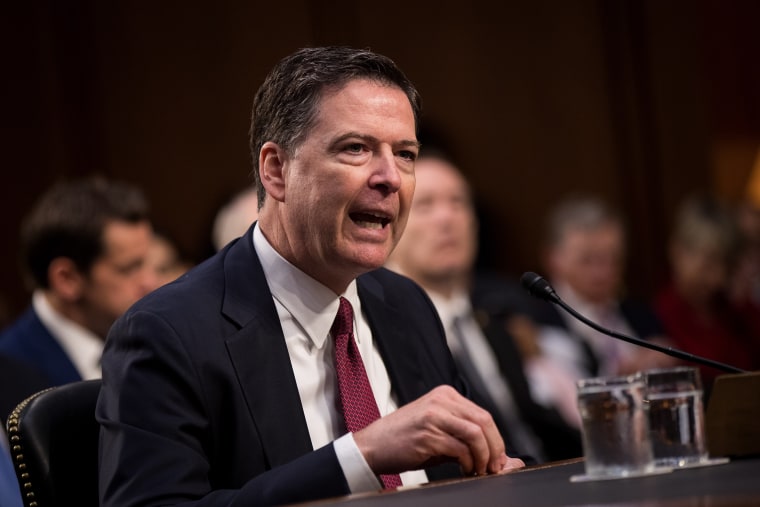In January, the Washington Post published a piece documenting the many ways in which congressional Republicans appeared to be conspiring to "discredit" the Russia investigation. The newspaper has updated that reporting more than once, including again this week.
And while the Post has clearly raised an important point, rooted in fact, the observation is also incomplete -- because congressional Republicans aren't just trying to undermine public confidence in the investigation; they're also taking deliberate steps to interfere with the ongoing federal probe.
For example, after the public learned about the existence of memos then-FBI Director James Comey wrote about his interactions with Donald Trump, congressional Republicans began demanding full copies of the materials. The Justice Department resisted for obvious reasons: the memos are evidence in an ongoing federal investigation, and law enforcement officials aren't in the habit of handing over such evidence to outside parties, especially not to satisfy a partisan political agenda.
But GOP lawmakers didn't care. The more the Justice Department declined, the more House Republicans demanded the materials, pressuring top law enforcement officials, no matter the costs. Yesterday, left with few options, the Justice Department relented.
Unredacted copies of the Comey memos were to be made available to members of Congress Friday at secure facilities at the Capitol. The Justice Department's decision to turn them over to lawmakers came just days after Deputy Attorney General Rod Rosenstein wrote to the Republican chairmen of the House Oversight, Intelligence and Judiciary Committees expressing concern that providing them could affect an ongoing criminal investigation.
It took very little time before unknown members of Congress leaked the evidence to the Associated Press, which was almost certainly the point all along. No serious observer has even tried to make the case that Republicans demanded the materials as part of some kind of exercise in oversight; this was always about GOP lawmakers looking for ways to undermine the investigation itself.
Deputy Attorney General Rod Rosenstein specifically told lawmakers recently that he was concerned about Congress "publicizing" sensitive materials. Republicans have only helped prove him right.
In practice, the partisan endeavor appears to be a failure. The lawmakers in question -- House Judiciary Committee Chairman Bob Goodlatte (R-Va.), House Oversight and Government Reform Committee Chairman Trey Gowdy (R-S.C.), and House Intelligence Committee Devin Nunes (R-Calif.) -- issued a joint statement late yesterday, trying to make some odd point about Comey disliking the president, but it now appears their gambit served no meaningful purpose. They tried to interfere with an ongoing criminal investigation, but they don't appear to have had much luck.
But just as a matter of principle, it matters that House Republicans have actively engaged in a campaign against a Justice Department probe. What's more, with DOJ officials feeling as if they had no choice but to give in to Congress' demands, the problem is likely to get worse: GOP lawmakers will now ask for more and try to interfere further.
If they find something that helps them undermine an ongoing probe, great. If law enforcement officials refuse, Republicans will push for their ouster. If the demands produce useless materials, they'll simply demand something else.
Rep. Adam Schiff, the ranking Democrat on the House Intelligence Committee, told the Washington Post's Greg Sargent yesterday, "The Deputy Attorney General should be aware that no matter what he gives to these members of Congress, it will never be enough. The point is to create a conflict with the Justice Department that would give the president grounds to get rid of Mueller or Rosenstein. They don't care what damage they do to our institutions to protect the president."
Keep this quote in mind in the weeks and months to come.
